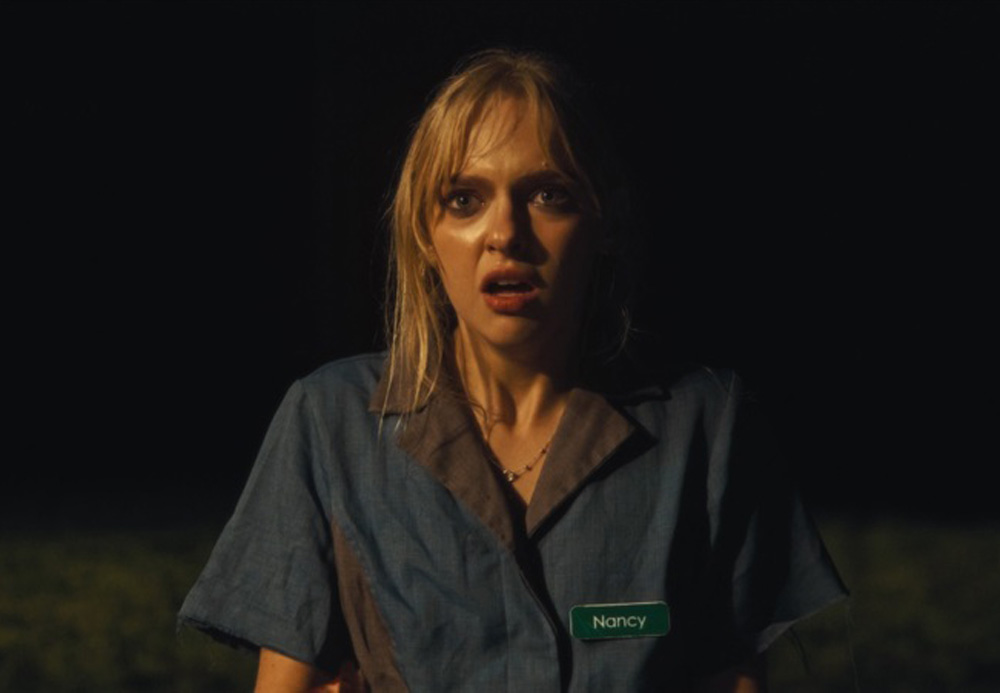“You don’t sound very confident to me,” Nancy tells her father Edward (Jeremy Sisto), who has put her in charge of the diner he owns while he’s out on a date in “Last Straw.” It could be the nerves of getting back out onto the swing of things or a lack of faith in his decision to make Nancy a manager at The Fat Bottom Bistro, a promotion that one can’t be sure is an affirmation of her abilities or a flyer that she’ll become more responsible a year removed from graduating high school. Likewise, he doesn’t know know what to make of how she’s already asserted her newfound authority, immediately firing her co-worker Jake (Taylor Kowalski) who she was already uneasy about spending the late shift with, though she’s the boss now and if he was around to see the lip Jake gave her, the decision would surely seem more like a sound one.
There are always a couple different ways to see things in Alan Scott Neal’s muscular first feature, working from Taylor Sardoni’s twisty screenplay where one of the curveballs becomes how it may seem like perspective is shifting for the viewer, but instead you’re witnessing how it shifts for Nancy, placed in an untenable position that she has to claw her way out of without anyone else’s help. In a star-making turn from Jessica Belkin, it would be enough to see Nancy on an ordinary day on the job, not taken seriously at all by Jake or far too seriously by her other co-worker Bobby (Jodi Otani-Hansen), who is so kindly he can annoy, and while handling both is no more difficult than any other aspect of busing tables, it becomes a particularly tall order when a group of hooligans on mopeds show up in rubber masks, ready to make life hell even if they’re just goofing around.
Whether Nancy’s given the gang a bit too much credit becomes the driving concern of “Last Straw” after she successfully rids herself of both the random troublemakers and those in her own kitchen by night, a presumable dead zone that she only has to work because her father has put the restaurant’s lights on a timer and God forbid any potential business would think the place was open when their doors were closed. Sardoni and Neal end up creating a similar traps for themselves narratively when the film’s opening scenes reveal blood and bodies on the floor, leaving the question of who and how to linger over the proceedings that sets the tone at a small cost to the eventual suspense, and a bold left turn sidelines Nancy, the film’s most compelling element, by shifting things away from her point of view. Still, these are small prices to pay for how “Last Straw” delivers the goods overall, with Belkin making a meal of Nancy’s tart tongue and a swagger to both cinematographer Andrey Nikolaev’s striking camerawork and composer Alan Palomo’s riffs on Tangerine Dream-esque dread that drives the film to satisfyingly terrifying ends.
It’s an auspicious and impressive debut for Neal, whose previous experience in casting shows when the gently heightened style only works because of the grounded performances of a perfectly picked ensemble, but the world that Nancy inhabits feels equally complete in its attention to detail and although not every risk works out when it comes to shaking up a tried-and-true story formula, you appreciate the willingness to go there. If “Last Straw” offers something different, it’s in the quality of the production and when Nancy comes to realize there might be something better for her than what life has had to offer so far, it’s especially rewarding to feel as if you’re watching something that’s a cut above.
“Last Straw” does not yet have U.S. distribution.




